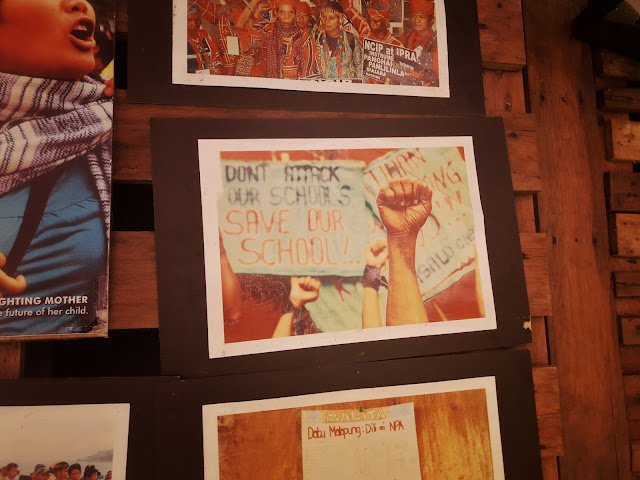Myself and the Community | #1
An experience is an
enchanting thing.
As
I read this line, at this very moment, each passing second adds up to the
records of my personal experiences; my own story; my own history. And just like
any other stories and histories, I believe that experiences are also
categorized in different genres and seasons, respectively.
There
are some experiences that are seemingly insignificant; events that I barely
noticed, I couldn't even remember they actually happened. And then, there are
some events in my life that are too embarrassing to share, but too valuable to
forget. Lastly, there are those horrible incidents that I tried to distort in
my mind, leading me to believe the illusion that those events didn't happen, or
at least, happened differently. But late at night, when I was all alone, it
wasn't just those events that had left me breathless, awake, and miserable. It
was because of the lie that at some point, actually became the truth to me.
The
weight of every happening in my life differs. The same applies to everyone
else. It's a universal thing. Some experiences cut deep, others scratch, while
most do nothing at all. Regardless of that, one thing is for sure: everything
matters. Everything is relevant.
You
might not agree with me. It's okay. Sometimes, I don't agree with myself
either. But let me ask you to stop, and breathe for a minute. Think about the
time when you have spent an hour or so watching the television. It was an
experience; a rather irrelevant one, you may say. But have you ever wondered
what would have happened if you did something productive, other than watching
TV? Have you thought about the effect of what you have watched to your mental
or emotional state? Have you ever wondered what things you "might"
have accomplished then? Maybe now, you should be done with your pending
responsibilities. Perhaps what you have watched has changed your perspective on
important matters. Or maybe instead of six hours of sleep, you had seven. You
never knew, and you will never know, because it already happened. It's in the
past.
You
see, every experience in our life equates to a single domino. Put together,
they can easily influence or impact another experience, one way or another. So
it doesn't really matter whether one experience was dull, or breathtaking. It
all boils down to the connection that binds them. You can't single out an
experience from the others. It doesn't work that way.
From
the "Psychodynamic Perspective" of Psychology, it was said that who
you are now is an accumulation of your past. For those who have built a great
foundation in their early years, this is good news to them. But for those who
aren't proud of their actions, this is disheartening.
I
belong in that latter group. I used to regret. I used to weep at night crying
out to God the question why?
"Why
did certain encounters have to happen?" "Why did I have to deal with
these challenges?" "Why did I have to be so stupid?" "Why
didn't God guide me?" And then soon enough, the most fundamental question
hit me: "Why me?"
These
open-ended questions have bothered me for a long time. I haven't necessarily
found an answer to those questions, but the words that was revealed to me later
in my life was more than enough to keep me going:














0 comments: